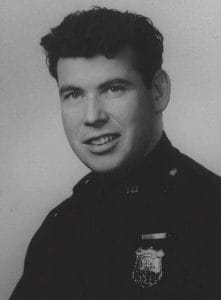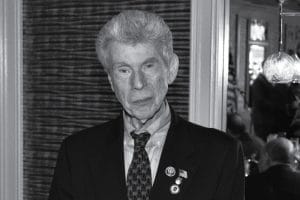Born in Manhattan, Schlossberg received his college degree in chemistry and did something unusual to help fund his graduate studies: he joined the New York Police Dept. as an officer, which paid $4,000 a year. By going to classes after his shifts he earned his master’s in psychology from Long Island University, and in 1971 earned a doctorate in clinical psychology from the Graduate School of Arts and Sciences at Yeshiva University. When Police Commissioner Patrick V. Murphy caught wind of the Ph.D cop, he moved Schlossberg from the accident investigation unit to the Medical Bureau, where he performed emotional testing on officers and recruits, and then was the founding Director of NYPD’s Psychological Services. “Harvey faced an uphill battle getting cops to ‘negotiate with killers,’ because for 130 years the N.Y.P.D.’s official M.O. in barricade situations had been to issue ultimatums, throw in smoke and tear gas, and, if necessary storm the building,” said Chuck Wexler of the law enforcement think tank, Police Executive Research Forum. “Many lives were lost. Harvey changed that.”

“It’s important to remember what an outsider Harvey was in the NYPD,” says Stefan Forbes, the director of a documentary about Schlossberg, Hold Your Fire. “In a top-down, paramilitary, predominantly Irish police culture of command and control, in walked an iconoclastic Jewish intellectual pacifist, a beat cop with a Ph.D in psychology.” After a series of high profile incidents, including the botched bank robbery that was the basis of the film Dog Day Afternoon (1975, starring Al Pacino), the department decided to put together a Hostage Negotiation Team. Schlossberg “laid out the behavioral, emotional, and cognitive framework for the unit, and Frank Bolz, a lieutenant in the Emergency Services Unit, added his tactical experience and became its first commanding officer,” says Edward Conlon of NYPD’s Communications Office. “The first class of negotiators, all of them detectives, graduated in April, 1973.” All were also volunteers, serving extra duty.
Schlossberg’s ideas were put to the test even before they graduated, in a January 1973 hostage situation. Gunmen killed a cop and then holed up in a Brooklyn sporting goods store, where they had their pick of weapons and plenty of ammunition. Rather than “issue ultimatums, throw in smoke and tear gas, and, if necessary storm the building,” Schlossberg counseled patience, even though the men had vowed to fight to the death. “It takes time, but time is important only as an ego thing,” he said. “Let me see if I can see the world the way [a criminal] sees it, see what he’s feeling, what’s pressuring him and then see what the alternate types of solutions are. And then I can offer them to him. And maybe he’ll be able to see the same thing. It’s kind of entering into his madness to help him find solutions.” It worked in the standoff, which stretched 47 hours, the longest in city history. After the initial shootout, officers didn’t fire another shot. All the hostages were rescued unharmed, and the gunmen were captured, tried, and imprisoned. He knew waiting was working when the gunmen requested food. “If you’re worried about food, you don’t want to die,” he said.

Schlossberg wrote a memoir, Psychologist With a Gun (1974), which emphasized communication. For example, he wrote, he might say “Drop that gun!” But the criminal might reply, “I won’t drop it, it’s a new gun.” “Well,” he might counter, “then lay it down.” He left the department in 1978 to concentrate on teaching, including at the John Jay College of Criminal Justice in New York, and 27 years at St. John’s University. He still dabbled in police work on the side, serving as the chief psychologist for the Rye, New York, police, and the Port Authority of New York and New Jersey. Dr. Schlossberg continued in private practice out of his Queens home, and died in a Brooklyn hospital on May 21. He was 85.
